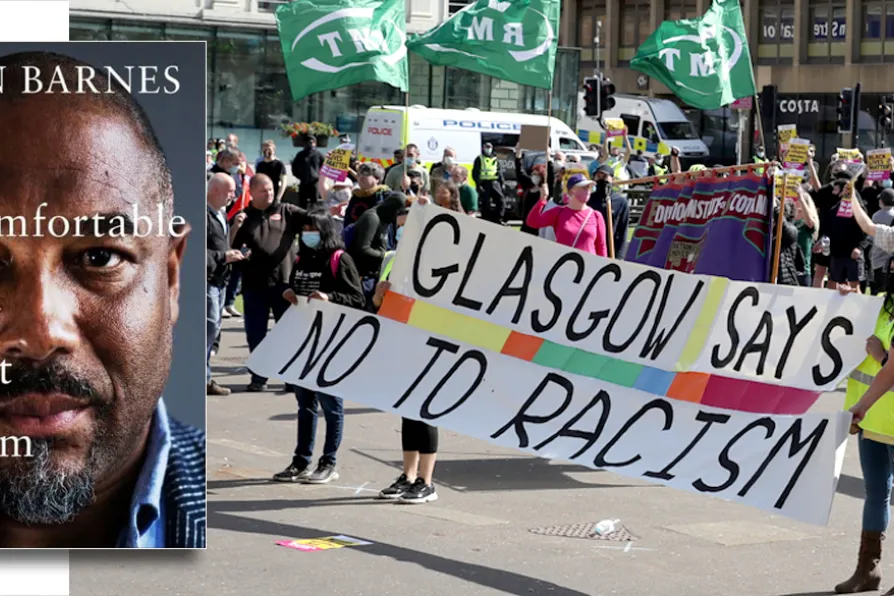Climate activist and writer JANE ROGERS introduces her new collection, Fire-ready, and examines the connection between life and fiction
Barnes rightly goes beyond race and into class and gender

 SOLIDARITY: Protesters in George Square during a Glasgow Says No to Racism event on World Refugee Day
SOLIDARITY: Protesters in George Square during a Glasgow Says No to Racism event on World Refugee Day
The Uncomfortable Truth About Racism
by John Barnes
Headline Publishing Group, £14.99
JOHN BARNES is a Jamaican-born black worker who, in his younger days, carried out his work in front of thousands of people.
Some people, always a minority, but a vocal one, were racist in their criticism while he was at work.
Barnes is one of the brightest football talents ever to grace the English game — regardless of the colour of his skin. He is also a black man who has had his own experiences of racism at work and chosen to deal with them in his own way.
Similar stories

Ways of opposing the increasingly repressive measures from the British state against protesters will be discussed at the Arise Festival. BEN HAYES reports













